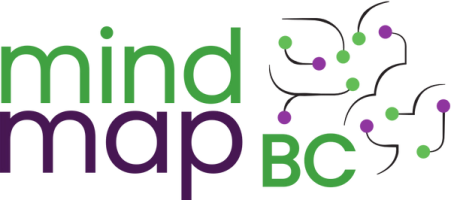Axel McGown, West Kootenay Wellness Centre
Summary
Addictions counselling
Individual counselling
Sliding Scale Available
LGBQ+ Affirming
Trans Affirming
 Wheelchair Accessible
Wheelchair Accessible2S/LGBTQ+ Affirming
Youth
Seniors
Remote services
My name is Axel McGown and I am a counsellor, offering online and in person services based in Nelson, BC, on Sinixt territory. I work with individuals experiencing a range of mental health concerns and I aim to provide a non-judgemental and compassionate container for folks to be seen and heard. My primary approach is using attachment-based somatic therapy to build on internal resources and create more resilience.
As a non-binary queer person, I'm passionate about working with people within the 2SLGBTQIA+ community. I offer a number of sliding scale spots to folks who are facing financial barriers to accessing mental health services.
Want to learn more about this service’s work with Two-Spirit, trans, LGBQ+ people?
We invite all service providers listed on MindMapBC to answer the following questions. These questions were developed in collaboration with community members, researchers, and mental health and other service providers. They're intended to help us understand what a service provider or organization is doing to affirm and support sexual and gender diverse service users.
See below for responses for this listing.
Want to learn more about our screening questions and filters?
Do you collect and use preferred names (rather than legal names) for all communications?
—Yes
I will always use your chosen name, unless your legal name is required on receipts for insurance purposes.
Are the forms used in your practice inclusive of various sexual orientations and gender identities (e.g., opportunities to fill in pronouns, etc.)?
—Yes
Are you and your colleagues aware of what specific barriers may exist for trans individuals accessing your services?
—Yes
Through formal and informal training, as well as my own lived experience, I'm aware of the barriers to accessing gender affirming mental health care. I strive to create an environment where it's safe for folks to express and explore their genders.
Do you offer Indigenous 2S/LGBTQ+ specific resources, for example Indigenous Elders or Knowledge Keepers?
—No
I am a settler and do not personally offer these resources but I would do my best to find a referral or help make a connection if it was helpful for a client.
Are you and your colleagues comfortable asking relevant questions about gender identity and sexual orientation?
—Yes
In my practice, questions relating to gender and pronouns are optional on intake forms. I leave it up to clients to decide when it's relevant to discuss gender identity and sexual orientation and ask questions in order to better understand and affirm their experience.
Are you and your colleagues aware of what specific barriers may exist for LGBQ individuals accessing your services?
—Yes
Through formal and informal training, as well as my own lived experience, I'm aware of the barriers to accessing mental health care that affirms lesbian, gay, bisexual, and queer experiences. I strive to create an environment where it's safe for folks of all orientations, where assumptions aren't being made, and where it's okay to explore.
Do you and your colleagues ask clients about pronouns and use them appropriately?
—Yes
Are you and your colleagues aware of what specific barriers may exist for Two-Spirit, queer, or trans Indigenous individuals accessing your services?
—Yes, to some extent
As a settler, I don't have first hand experience of barriers that Indigenous individuals may have but I do my best to continue educating myself so that I can work to eliminate barriers within myself and the structures I work in. My work is in solidarity with decolonization and I am in a continual unsettling process.
Do you and your colleagues have experience working with people who identify as living with a disability or chronic illness? Please tell us more about your experience and any training you have received.
—Yes, to some extent
Disability justice is part of my value framework as a temporarily able-bodied person. I have years of professional experience working with individuals with developmental disabilities, and personal experience supporting people in my life who live with chronic illness and disability. I continue to learn from people with disabilities and build accessibility into my practice.
Do you and your colleagues have experience providing services that support clients with navigating gender dysphoria*?
*TransCareBC describes gender dysphoria as a term "intended to describe the distress some trans people experience with relation to their gender identity, particularly if they would like to transition but have not yet done so".
—Yes
I have years of experience supporting individuals experiencing gender dysphoria, in personal and professional contexts.
Do you/your colleagues understand the difference between gender dysphoria and mental health conditions/symptoms that are unrelated to gender dysphoria or distress?
—Yes
I understand that trans and gender diverse individuals come to counselling with a range of mental health issues, which may or may not include gender dysphoria. I am committed to working from a client-centred perspective on whatever issues people are bringing to sessions.
Please tell us how equipped you feel to support a client in determining if/when their mental health symptoms are related to their gender-related experiences or other factors? Please describe your response choice below.
—Very confident
It’s important to me that I hold space for the ways that the issues bringing people to counselling are often rooted in systemic injustice, such as cissexism and transphobia. From this place, we can explore perspective on how interlocking oppressions have shaped each of our experiences.
However, part of assessment is mapping out the various factors influencing mental health. Gender may be one piece of the puzzle, or it may be less relevant compared to other aspects of someone's life.
Does your practice have gender-neutral washrooms?
—Yes
Are there clear anti-discrimination policies that include gender identity, gender expression, and sexual orientation in your organization or practice?
No response provided.
Are all individuals involved in service provision actively engaged in decolonizing their practices and/or organization? If yes, please type below what actions you and/or your organization are taking.
—Yes
As a white person and a settler, I am committed to anti-racism, and de-colonial work. This means unpacking the ways white supremacy lives within me and taking action in solidarity with Indigenous people, Black people, and people of colour. It’s important to me that I hold space for the ways that the issues bringing us to counselling are often rooted in systemic injustice, and offer perspective on how interlocking oppressions have shaped each of our experiences.
I continue to learn from Black and Indigenous folks, and People of Colour about how I can support and work in solidarity with anti-racist movements. I seek supervision to unlearn white supremacy within my counselling practice.
Are all individuals involved in service provision actively engaged in anti-racist practices, policies, and systems in their care model?
—Yes
Address
384 Baker Street
Nelson, BC
V1L 4H5
Last updated: December 20, 2022
Request changes —

